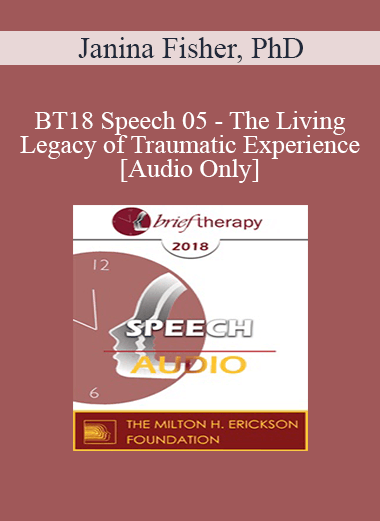- Topic Areas:
- Speech
- Category:
- Brief Therapy Conference | Brief Therapy Conference 2018
- Faculty:
- Janina Fisher, PhD
- Duration:
- 1:05:26
- Format:
- Audio Only
- Original Program Date :
- Dec 09, 2018
Description
Description:
Neuroscience research has established why it is that trauma results in a fragmented narrative along with a ‘living legacy’ of enduring effects. The survival responses that preserve life and integrity under threat do not diminish once safety is obtained. Meant to warn us of impending danger, these easily re-activated survival responses continue to re-evoke the events of long ago decades after they are over. Once baffling and frustrating to treat, the evolution of new neurobiologically-informed treatments offers new, hopeful answers to the aftermath of trauma: the chronic fear of danger, dread of impending doom, loss of hope or energy, the longing for human connection, and self-destructive and addictive behavior.
Educational Objectives:
- Define five common cognitive, affective, and somatic effects of trauma.
- Differentiate spontaneous emotion from trauma-related implicit memories.
- Describe the effects of trauma-related autonomic dysregulation.
*Sessions may be edited for content and to preserve confidentiality*







